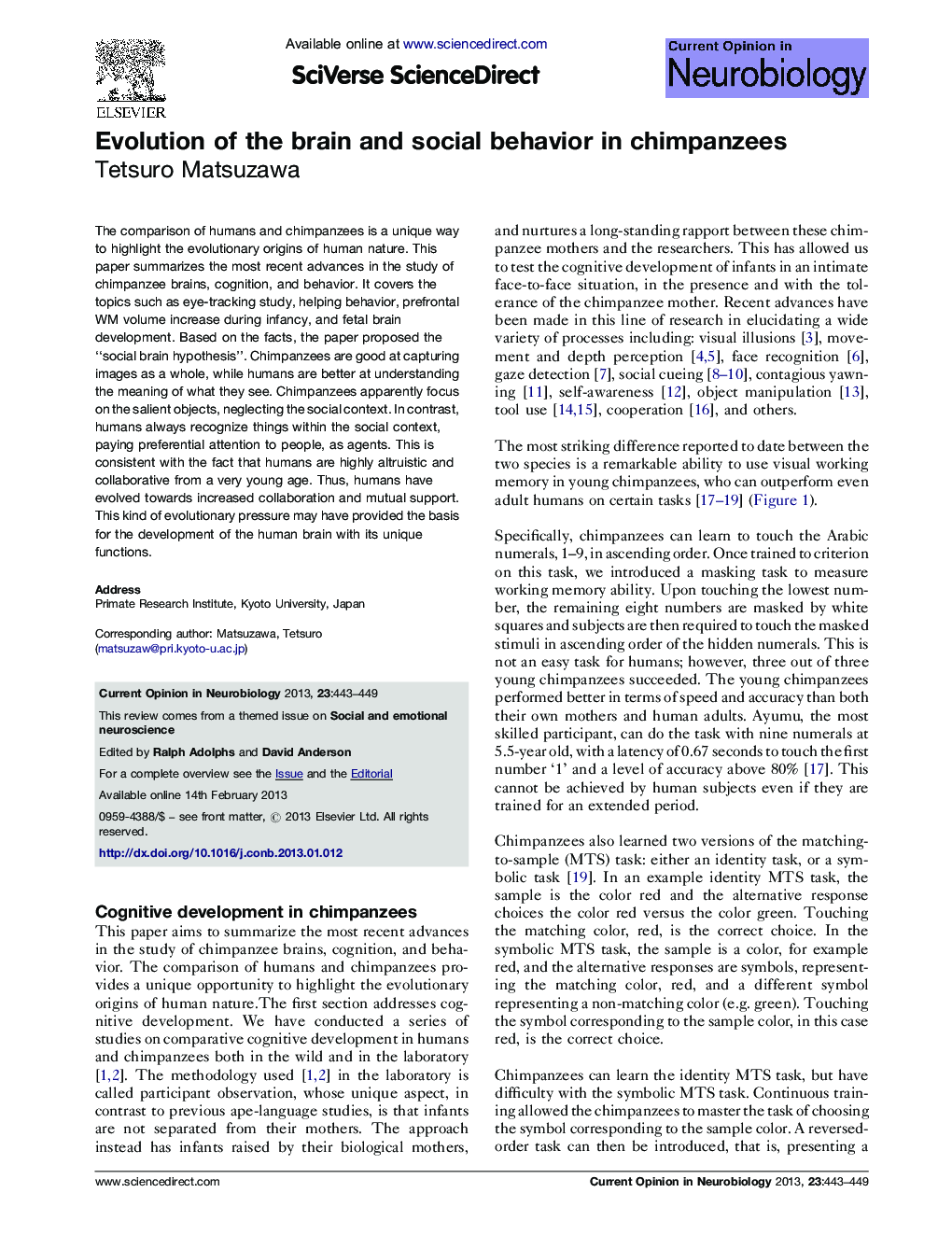| Article ID | Journal | Published Year | Pages | File Type |
|---|---|---|---|---|
| 6267191 | Current Opinion in Neurobiology | 2013 | 7 Pages |
The comparison of humans and chimpanzees is a unique way to highlight the evolutionary origins of human nature. This paper summarizes the most recent advances in the study of chimpanzee brains, cognition, and behavior. It covers the topics such as eye-tracking study, helping behavior, prefrontal WM volume increase during infancy, and fetal brain development. Based on the facts, the paper proposed the “social brain hypothesis”. Chimpanzees are good at capturing images as a whole, while humans are better at understanding the meaning of what they see. Chimpanzees apparently focus on the salient objects, neglecting the social context. In contrast, humans always recognize things within the social context, paying preferential attention to people, as agents. This is consistent with the fact that humans are highly altruistic and collaborative from a very young age. Thus, humans have evolved towards increased collaboration and mutual support. This kind of evolutionary pressure may have provided the basis for the development of the human brain with its unique functions.
⺠Eye-tracking study compared humans and chimpanzees. ⺠An interesting aspect of chimpanzee collaboration: helping behavior on demand. ⺠Fetal brain development in chimpanzees using a noninvasive ultrasound technique. ⺠Rate of prefrontal WM volume increase during infancy was slower in chimpanzees.
